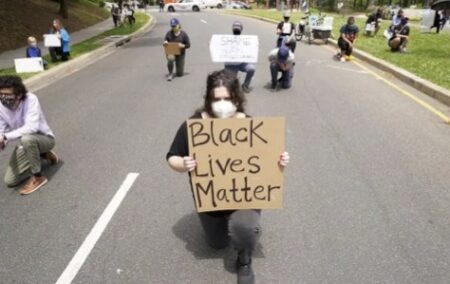The sentiments and the solidarity may be genuine enough, but if that’s as far as it goes, it’s not nearly enough.
I wrote these words a little more than a year ago in a piece – on ‘taking the knee’ – which began by suggesting that ‘there is a natural enthusiasm for joining in collective gestures in the hope of exhibiting our better selves’.
And I am certain that, for the vast majority of people, that impulse comes, as the idiom has it, from ‘a good place’, and that the good society likely depends on it. At its best, it is an impulse of kindliness.
I still think that, as I wrote last June, the ‘sentiments and the solidarity may be genuine enough, but if that’s as far as it goes, it’s not nearly enough’.
Virtually every piece of IRR research of the last decade and more portrays an unignorable context of deficiencies and failings in which gestures and declarations of kindliness create at best only the atmosphere in which we might hope to begin to think about what needs to be done.
Or do they?
Because, on reflection, there’s a greater problem – it’s not so much that gestures and symbols are not enough, but that, in allowing them to take the place of acting, and of seeming to be meaningful ‘actions’, they perversely confirm a false sense of powerlessness, a tacit concession that gesturing is all-important because it is the only agency that’s possible.
Status quo
The reward – again, perversely – is only that the status quo is prolonged, and prolonged at the expense of the vast majority of poor, jobless, under-educated and increasingly hopeless South Africans.
With the masterly economy that the best of Twitter delivers, 702’s Bongani Bingwa posted the following tweet recently:
Who knows what this reflection of the real systemic failure we confront every hour meant to most people, but it tells you something that the intelligentsia has shown far more interest in Gareth Cliff and Quinton de Kock.
It is hard to believe that, given the ‘lived experience’ of millions of South Africans trapped in joblessness and immiseration, so much energy and thought has been invested in analysing the impulses of a radio show host and a sportsman as if, had they spoken or acted any differently, the consequences might have been measurable in the wellbeing of people, their living conditions, their dignity, their ambitions, their confidence in a different future.
Agency
But these things don’t register in the debate – a hard look at policy, for instance, or effective governance, appointment of managers, employment of staff. Too many are content to settle for powerlessness than exercise their agency in addressing these things.
The painful corollary of settling for gestures, however kindly they may seem, is that black lives won’t matter, not enough anyway to change them. As I concluded last year, ‘(the) question is not whether black lives matter, but what must be done to demonstrate, for once, that they do’.
That we are not there yet suggests South Africa’s intelligentsia has a lot to answer for, and until that’s acknowledged, we are likely in for a rough ride.
If you like what you have just read, support the Daily Friend


